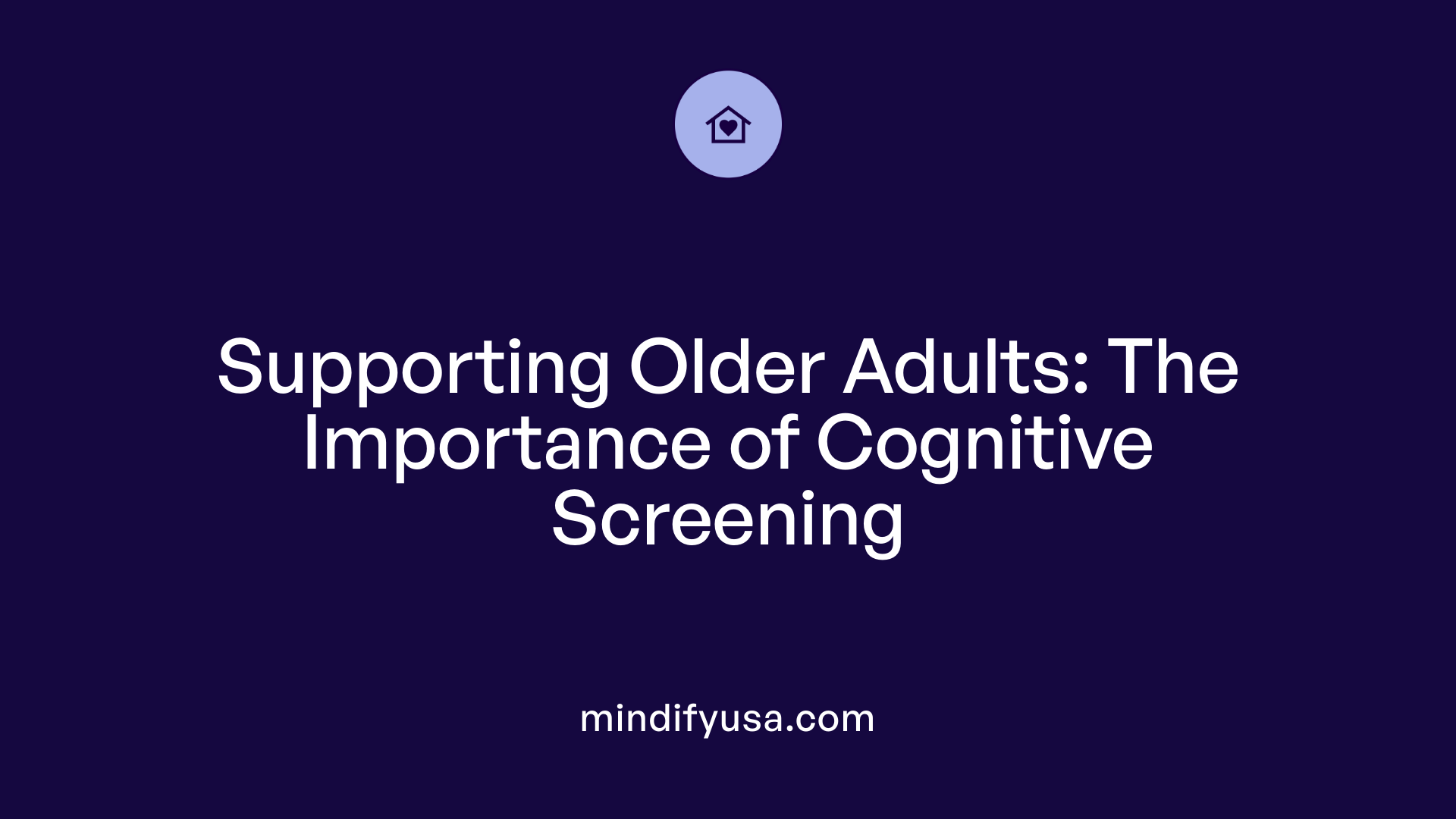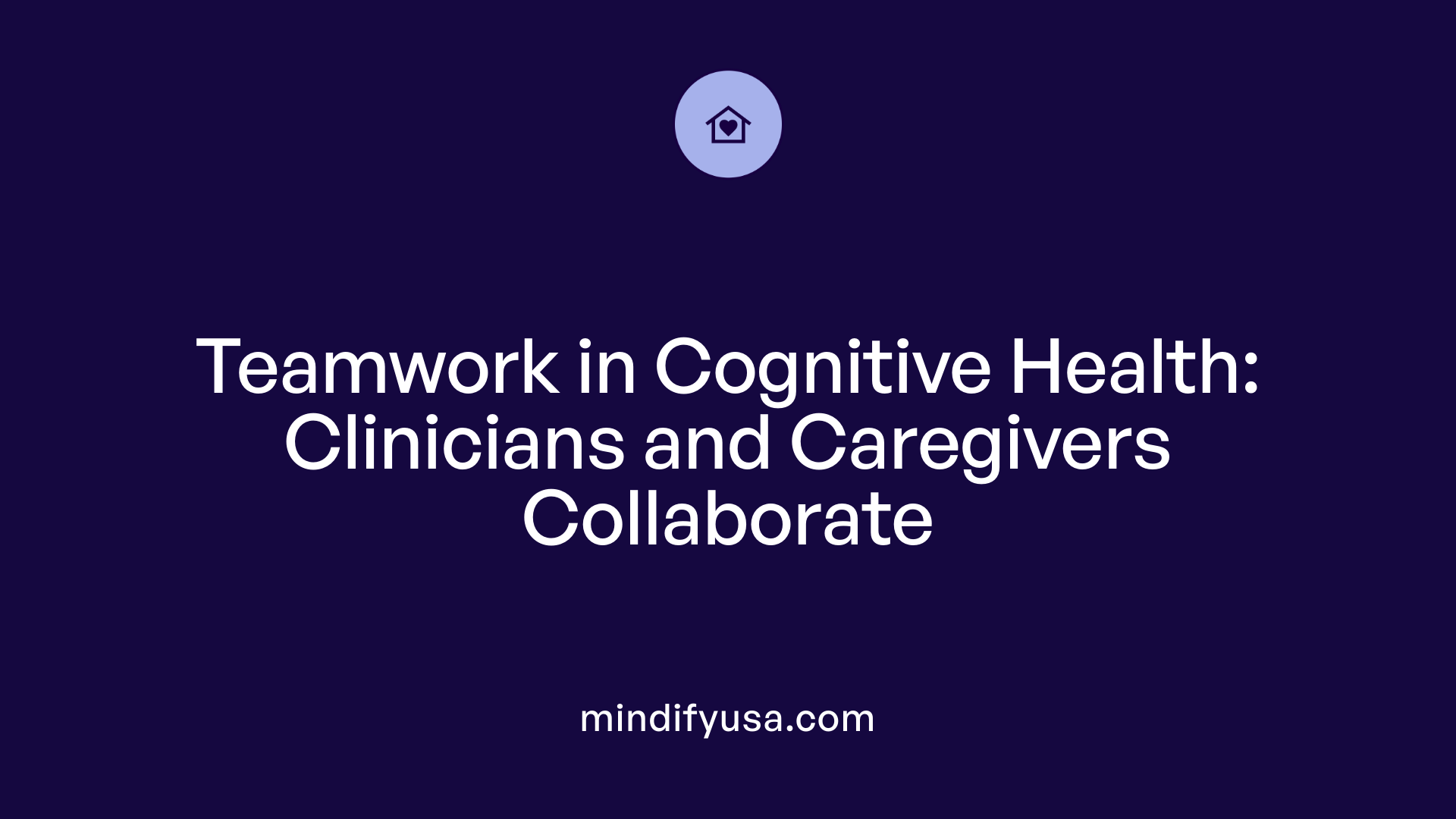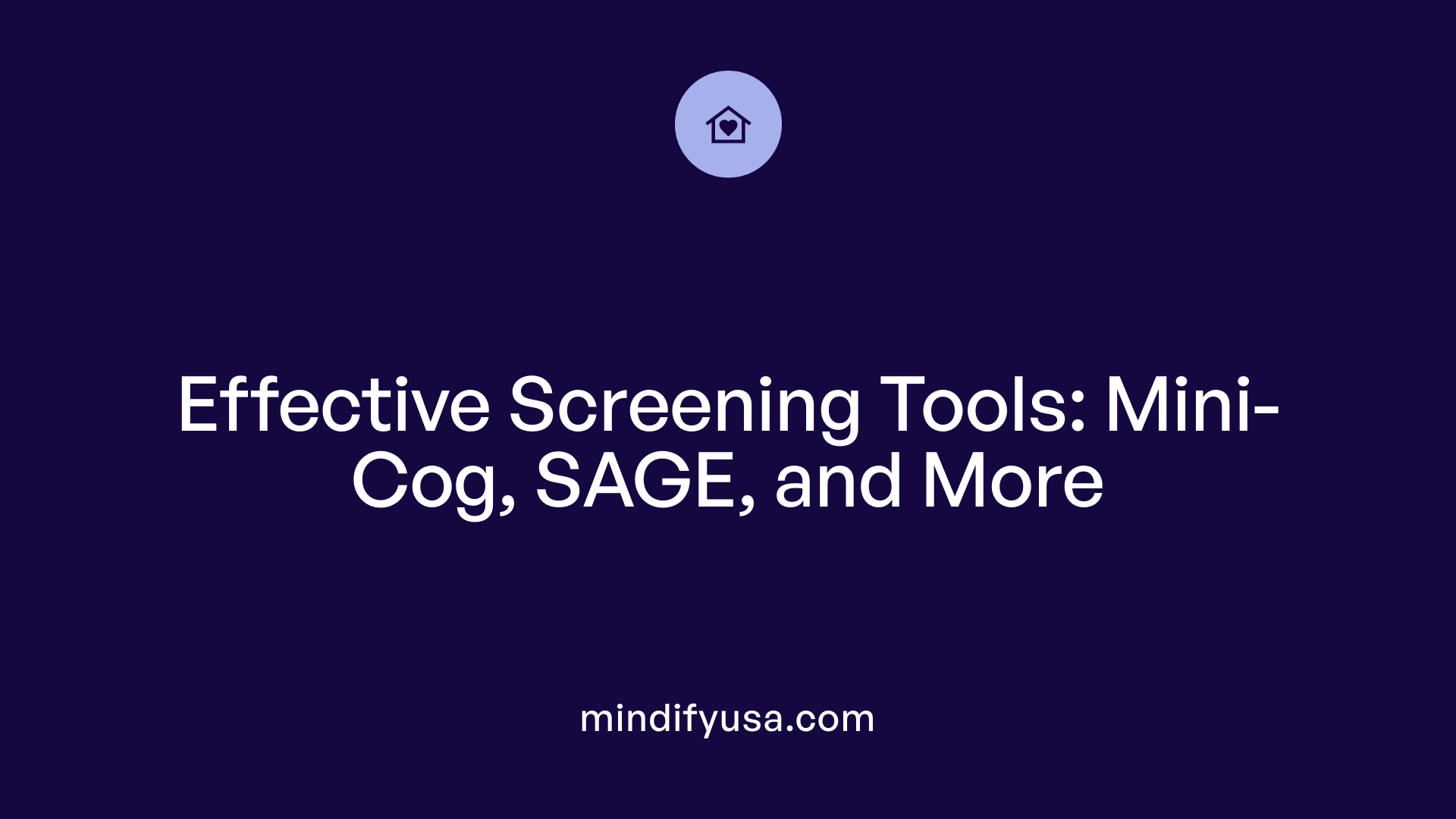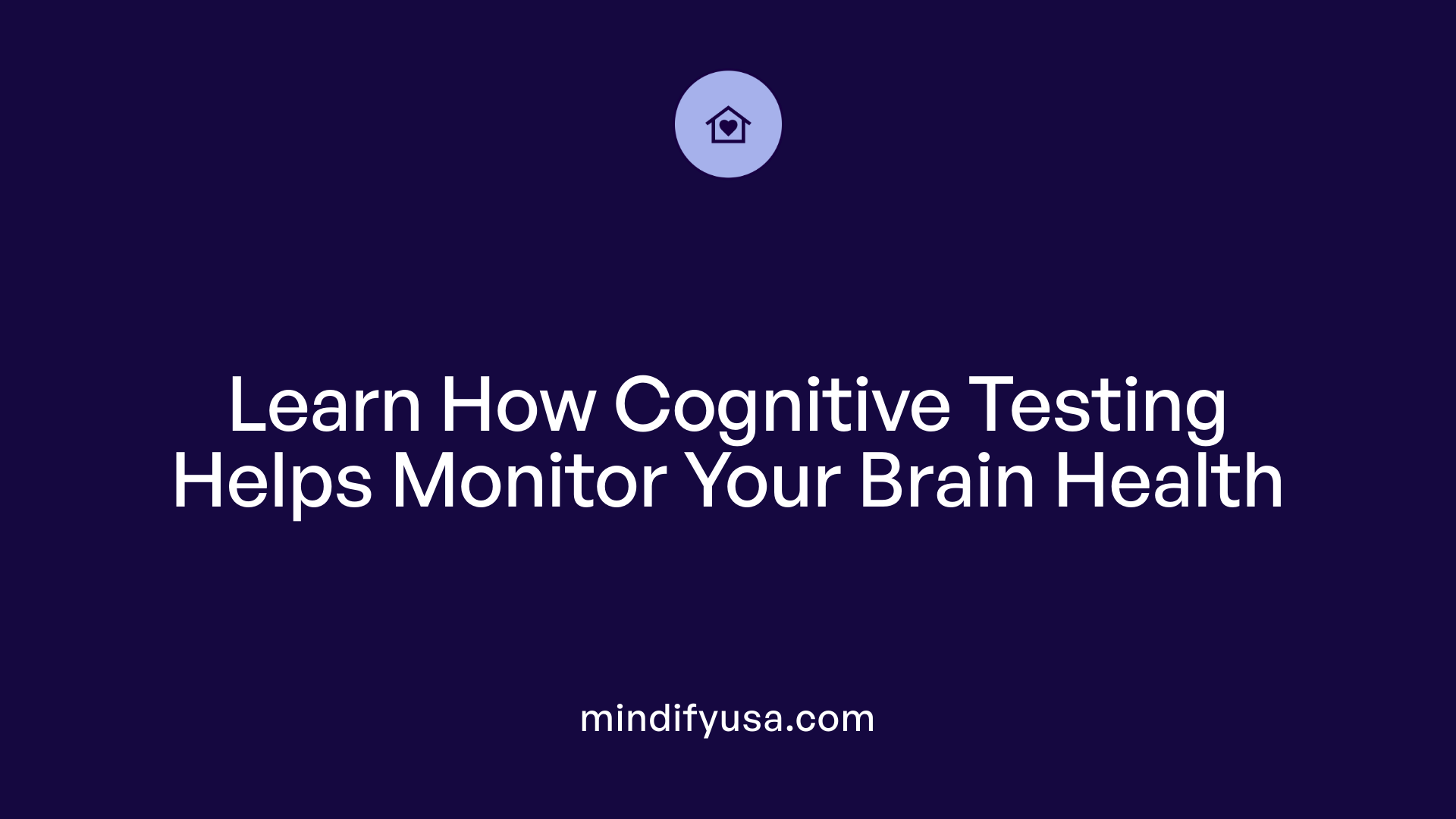Understanding the Importance of Regular Cognitive Assessments in Older Adults
Cognitive testing plays an essential role in monitoring the mental health and functional ability of seniors. As populations age worldwide, the importance of early detection of cognitive decline, including conditions like dementia and Alzheimer's disease, has become increasingly clear. Regular assessments allow healthcare providers and caregivers to identify early signs of decline, facilitating timely intervention, better management, and planning for ongoing care. This comprehensive overview explores various assessment methods, their applications, and recent advances in cognitive testing technology to promote healthier aging and improved quality of life for seniors.
Role of Cognitive Testing in Senior Health Monitoring

What is the role of cognitive testing in monitoring cognitive decline in seniors?
Cognitive testing is an essential part of assessing the mental health of older adults. It allows healthcare providers to quickly evaluate functions such as memory, decision-making, language, and reasoning. These tests are brief, often taking just 3 to 15 minutes, and can be administered during routine visits like the Medicare Annual Wellness Visit.
Regular cognitive assessments help identify early signs of decline, including mild cognitive impairment and dementia. Common tools, such as the Mini-Cog, QDRS, or GPCOG, are straightforward and can be filled out by patients or their caregivers. When test results suggest possible impairment, they prompt further evaluation, which might include neuropsychological testing, brain imaging, or specialist referrals.
Early detection is vital because it enables timely intervention. It can lead to better management of underlying conditions, safety planning, and support for both patients and their caregivers. Additionally, these assessments provide a baseline for monitoring changes over time, aiding in the assessment of disease progression or response to treatments.
Overall, cognitive testing is a simple, effective way to support early diagnosis and ensure older adults receive the care and support they need to maintain quality of life.
The Significance of Early Detection of Cognitive Decline

Why is early detection of cognitive decline, dementia, and Alzheimer's disease important?
Detecting cognitive impairment at an early stage offers several benefits for patients and their families. It allows for timely medical intervention that can slow disease progression, manage symptoms more effectively, and improve overall quality of life. Early diagnosis also helps individuals plan for the future, including safety measures, legal and financial arrangements, and personal preferences for care.
From a treatment perspective, early identification opens doors to emerging therapies that are most effective when started early, including FDA-approved medications like Lecanemab and Donanemab for Alzheimer's disease. Moreover, early detection facilitates participation in clinical trials aimed at finding cures or more effective treatments.
Supporting patients and families becomes easier when cognitive decline is identified early. It enables access to support services, educational resources, and counseling that can help families navigate the emotional and practical challenges associated with cognitive impairment.
Additionally, early screening with brief, simple tools like the Mini-Cog, SAGE, or Clock-Draw Test can be conducted during routine visits, making it accessible and unobtrusive. When positive signs are detected, further evaluations such as neuropsychological tests, brain imaging, or specialist referrals can be initiated, ensuring a comprehensive approach.
Overall, early detection of cognitive decline is vital because it empowers individuals to make informed decisions, access supportive resources, and potentially participate in interventions that may delay or slow the progression of dementia and related conditions.
| Benefits of Early Diagnosis | Impact on Treatment Options | Support for Patients and Families |
|---|---|---|
| Enables timely management of symptoms | Access to emerging therapies | Helps with planning and safety |
| Facilitates participation in clinical trials | Slows disease progression | Provides emotional and educational support |
| Improves ability to maintain independence | Early intervention for reversible causes | Enhances quality of life for all involved |
| Allows better safety planning | Increases chances for early, accurate diagnosis | Guides decision-making about care options |
Healthcare Providers and Caregivers: Partners in Cognitive Monitoring
 Assessment procedures for cognitive impairment can be performed during any visit to a healthcare facility and are a required part of the Medicare Annual Wellness Visit. These evaluations typically involve brief tools like the Mini-Cog, QDRS, or AD8, which can be completed in less than 10 minutes by the patient or caregiver. Such quick assessments are designed to identify early signs of cognitive issues without requiring extensive time commitments.
Assessment procedures for cognitive impairment can be performed during any visit to a healthcare facility and are a required part of the Medicare Annual Wellness Visit. These evaluations typically involve brief tools like the Mini-Cog, QDRS, or AD8, which can be completed in less than 10 minutes by the patient or caregiver. Such quick assessments are designed to identify early signs of cognitive issues without requiring extensive time commitments.
During ongoing monitoring, healthcare providers play an essential role by administering these standardized cognitive tests regularly, interpreting the results, and tracking any changes over time. They are alerted to subtle shifts in cognitive abilities, such as difficulties with memory, language, or decision-making, which might indicate emerging impairment.
Caregivers contribute significantly by providing observational data rooted in daily life. Their reports of behavioral changes, memory lapses, or personality shifts can help clinicians understand the patient's usual functioning. Caregivers often notice subtle decline before it is evident in clinical assessments, making their insights invaluable for early detection.
By working together, healthcare providers and caregivers create a comprehensive picture of cognitive health. Providers rely on caregiver input to inform decisions about further testing, referrals, or interventions. Meanwhile, caregivers gain guidance on supporting the individual through cognitive changes, engaging in activities that promote mental activity, and ensuring safety.
Effective collaboration enhances early diagnosis and management, improving quality of life for individuals experiencing cognitive decline. Caregivers and professionals thus form a vital partnership in maintaining cognitive health, emphasizing the importance of clear communication, consistent monitoring, and tailored support strategies.
Methods and Tools for Cognitive Assessment in Seniors
What are common cognitive assessment methods and tools used to evaluate aging individuals?
Cognitive assessment in older adults can be performed using a variety of tools that are brief, effective, and easy to administer. During routine healthcare visits or when specific concerns arise, clinicians employ several screening tests to quickly evaluate cognitive function.
Standard tools such as the Mini-Mental State Examination (MMSE), Montreal Cognitive Assessment (MoCA), Mini-Cog, and the General Practitioner Assessment of Cognition (GPCOG) are widely used. Each of these tests measures core areas such as memory, orientation, attention, language, visual-spatial skills, and judgment. For example, the MMSE and MoCA provide a comprehensive 10 to 15-minute assessment scored on a 30-point scale, helping clinicians identify potential cognitive deficits.
In addition to these comprehensive tools, shorter assessments like the AD8, QDRS, Memory Impairment Screen, and the IQCODE are highly valued for their efficiency. These can often be completed by trained staff, caregivers, or the patients themselves within five to ten minutes. For instance, the IQCODE is a questionnaire filled out by someone who knows the individual well and can highlight changes over time.
These assessments are frequently used during routine visits, following incidents such as falls or infections, or when patients report symptoms like memory lapses or language difficulties. They serve as initial screens that guide whether further, more detailed evaluations are needed.
When screening tests suggest possible impairment, clinicians may refer patients for neuropsychological assessments, neuroimaging, or specialist consultation with neurologists, geriatricians, or neuropsychologists. This step is crucial for confirming diagnoses and planning appropriate interventions.
Overall, the selection of assessment tools depends on the clinical setting, patient characteristics, and the specific cognitive domains of concern. These validated and practical tests are essential in the early detection of cognitive decline, enabling timely treatment and support for older adults.
| Tool Name | Duration | Assessment Focus | Suitable For | Additional Notes |
|---|---|---|---|---|
| MMSE | 5-10 min | Memory, attention, language, orientation | Primary care, clinics | Widely used, scoring out of 30 |
| MoCA | 10-15 min | Executive function, visuospatial, memory | Early detection | Sensitive for mild impairment |
| Mini-Cog | 3 min | Memory, clock drawing | Community and primary care | Quick, effective |
| GPCOG | 2-5 min | Cognitive functioning, caregiver input | Elderly populations | Includes informant interview |
| AD8 | 3-5 min | Dementia screening | Primary care, caregivers | Completed by patient or informant |
| IQCODE | 10 min | Informant-rated cognitive decline | Long-term caregivers | Quantifies changes over years |
Using these tools routinely enhances early identification and management of cognitive issues among seniors, ultimately improving their quality of life.
Specific Cognitive Screening Tests: The SAGE Test and Others

Overview of screening tools
Cognitive screening tests are quick assessments designed to evaluate brain function and identify potential cognitive issues. These tools are commonly used during primary care visits to help detect early signs of impairments such as mild cognitive impairment (MCI) or dementia. Among the most well-known are the Mini-Mental State Examination (MMSE), the Montreal Cognitive Assessment (MoCA), and the Self-Administered Gerocognitive Exam (SAGE). These tests focus on various cognitive domains, including memory, language, reasoning, and visuospatial skills.
While each test has its specific format, their primary role is screening—quickly highlighting individuals who may need further, more comprehensive evaluation. It’s important to remember that these tools do not diagnose specific diseases but serve as initial indicators that line us toward additional testing.
Application and administration
Most cognitive screening tests are brief, often taking between 3 to 15 minutes to complete. The SAGE, for example, is a paper-based, self-administered tool that requires no special equipment. It contains 12 questions assessing thinking abilities, memory, and problem-solving, typically taking about 10-15 minutes.
In a healthcare setting, these tests can be administered directly by clinicians or completed independently by patients in the presence or absence of a caregiver. The results help healthcare providers understand the current status of cognitive function. For instance, the Mini-Cog involves quick tasks like recalling words and drawing a clock, while the MoCA involves more complex tasks such as connecting numbered and lettered circles.
Self-administered options like the SAGE are especially useful because they require minimal oversight. Patients or caregivers can complete these assessments online or on paper before or during a medical visit. Depending on the scores, clinicians may decide whether further testing, such as neuropsychological assessments or brain imaging, is necessary.
Interpreting results and further steps
When review of the screening results indicates normal cognition, regular monitoring may continue with periodic reassessment. If results suggest potential impairment—such as difficulty recalling words, drawing the clock inaccurately, or scoring below established thresholds—further investigation is warranted.
Additional testing can include neuropsychological evaluations to analyze specific cognitive strengths and weaknesses, neuroimaging like MRI or PET scans to identify possible neurological changes, and consultations with specialists such as neurologists or geriatricians.
Early identification through these tests allows for timely intervention, safety planning, and management of underlying causes. Although no cure exists for Alzheimer’s and many dementias, early detection can help improve quality of life through medications, lifestyle changes, and support for patients and families.
Below is a summary table comparing some popular screening tools:
| Test Name | Time to Administer | Main Focus | Special Features |
|---|---|---|---|
| SAGE | 10-15 minutes | Multiple cognitive domains | Self-administered, no equipment needed |
| MMSE | 5-10 minutes | Orientation, attention, language | Widely used, shorter time |
| MoCA | 10-15 minutes | Memory, visuospatial, executive | Sensitive for mild impairment |
| Mini-Cog | 3 minutes | Memory recall, clock drawing | Fast, effective as initial screen |
Overall, cognitive screening tests serve as essential tools in the early detection of cognitive decline, guiding clinicians toward appropriate further evaluation and intervention.
Conducting Cognitive Assessments and Interpreting Results

How are cognitive assessments conducted, and how should the results be interpreted?
Cognitive assessments are typically performed during routine healthcare visits, especially during Medicare's Annual Wellness Visit, where screening for cognitive impairment is recommended. The process involves brief, structured tests administered by trained healthcare staff, often taking less than 15 minutes. Common tools include the Mini-Cog, Montreal Cognitive Assessment (MoCA), Mini-Mental State Examination (MMSE), and the GPCOG. These tests evaluate various cognitive abilities such as memory, attention, language, reasoning, and problem-solving.
Staff members may also utilize questionnaires like the Eight-item Informant Interview or the Short Informant Questionnaire, which gather insights from family members or caregivers about the patient's cognitive changes. Self-administered tests like the SAGE or digital tools such as CANTAB Mobile® offer additional screening options, often completed independently by the patient.
Results from these assessments are scored according to standardized criteria and compared against normative data based on age and education level. A score within the normal range suggests typical cognitive functioning, while lower scores or flagged responses indicate possible impairment or early signs of cognitive decline, such as Mild Cognitive Impairment (MCI) or dementia.
Interpreting these results requires considering the whole clinical picture, including patient history, observed behavioral changes, informant reports, and any underlying medical conditions. An abnormal or concerning score should prompt further evaluation, like neuropsychological testing, neuroimaging (MRI, PET scans), or blood tests to determine underlying causes.
It's important to remember that cognitive screening tools are not diagnostic on their own. They serve to flag potential issues and guide clinicians on whether more comprehensive assessments are needed. The goal is early detection, which can facilitate timely treatment, safety planning, and support for patients and caregivers.
Understanding and acting on outcomes
When assessment results suggest impairment, clinicians usually refer patients for detailed neuropsychological evaluations or specialist consultations with neurologists or geriatricians. These follow-up evaluations help confirm diagnoses, explore causes, and develop management strategies.
Moreover, detecting cognitive decline early allows for interventions that may slow progression or improve quality of life. Even in cases where no immediate treatment is available, early diagnosis enables planning for safety measures and caregiver support.
Continuous monitoring of cognitive function over time, through repeated assessments, helps track disease progression and effectiveness of any interventions.
Recent Developments and Future Directions in Cognitive Testing
What are some recent advances in cognitive testing for seniors?
Recent progress in cognitive screening for older adults combines technology with innovative research to improve early detection and monitoring. Digital and computerized assessment tools now support remote administration, allowing patients to complete tests from home with real-time scoring. This not only increases accessibility but also facilitates ongoing tracking of cognitive changes over time.
Artificial intelligence (AI) plays a growing role by personalizing evaluations, increasing sensitivity, and helping identify subtle signs of decline earlier. Some AI-driven tools have achieved classification accuracies as high as 91%, offering promising avenues for earlier intervention.
Large-scale data collection initiatives, such as the All of Us Research Program, are integrating cognitive test results with genetic, environmental, and lifestyle information. This holistic approach aims to redefine understanding of cognitive health and improve diagnostic precision.
Studies now validate the feasibility of remote assessments like the Montreal Cognitive Assessment (MoCA), CFC2, and T-CogS via videoconferencing. These methods demonstrate reliability and are suitable for seniors at risk for dementia, especially during periods when in-person testing is challenging.
Furthermore, platforms like Linus Health’s digital assessments leverage innovative methods such as process-based analysis with tools like the DCTclock™. This technology detects very subtle impairment signs quickly, supporting early intervention strategies tailored to individual brain health profiles.
| Technology | Features | Benefits | Examples |
|---|---|---|---|
| Digital assessments | Remote, real-time scoring | Increased access, consistent monitoring | MoCA, CFC2, T-CogS |
| AI integration | Personalization, sensitivity | Enhanced early detection | Various proprietary tools |
| Data integration | Combining test scores, genetics, lifestyle | Better diagnostic accuracy | All of Us dataset |
These emerging advances promise to transform cognitive screening, enabling earlier, more accurate detection that can lead to better management and quality of life for older adults.
Summary and the Path Forward
Ongoing monitoring of cognitive health is essential, especially for older adults, and can be integrated seamlessly into regular healthcare visits. Brief but effective screening tools like the Mini-Cog and SAGE enable clinicians to swiftly identify potential cognitive decline, prompting further evaluation when necessary.
Early detection of cognitive impairment serves a vital role in managing underlying causes, planning for safety, and providing support to patients and caregivers. Tools such as MRI, neuropsychological tests, and even digital assessments are expanding the ways healthcare providers can monitor cognition over time.
Advocacy for early screening and intervention is increasingly supported by organizations like the U.S. Preventive Services Task Force, emphasizing the importance of awareness of subtle early signs. As technology advances, new digital tools — including FDA-cleared apps and neuroimaging methods — offer promising avenues for earlier and more precise detection.
In the future, the integration of innovative technologies with traditional assessment methods will enhance our ability to diagnose cognitive issues sooner, personalize treatment plans, and better support aging populations. Continued research and development will be essential to optimize these tools for broader use, ultimately improving quality of life and health outcomes.
Empowering the Future of Brain Health in Older Adults
Regular cognitive assessments are a cornerstone of healthy aging, enabling early detection and intervention that can significantly influence the trajectory of cognitive health. Advances in assessment tools, including digital platforms and AI-powered technologies, promise to further enhance early detection capabilities, making screening more accessible, accurate, and personalized. Collaborative efforts between healthcare providers, caregivers, researchers, and technology developers are essential to optimize cognitive monitoring and improve outcomes for seniors worldwide. Embracing innovation and promoting awareness will ensure that aging populations receive the timely support they need to maintain their independence and quality of life.
References
- Assessing Cognitive Impairment in Older Patients
- Cognitive Test: What It Is, What It Tests, Types & Results
- Cognitive Screening and Assessment
- Free Cognitive Tests for Older Adults and Caregivers to ...
- Detecting Cognitive Decline in High-Functioning Older Adults
- How To Measure Cognitive Decline In Older Patients
- Informant questionnaire on cognitive decline in the elderly
- Mild cognitive impairment - Diagnosis and treatment





































































































